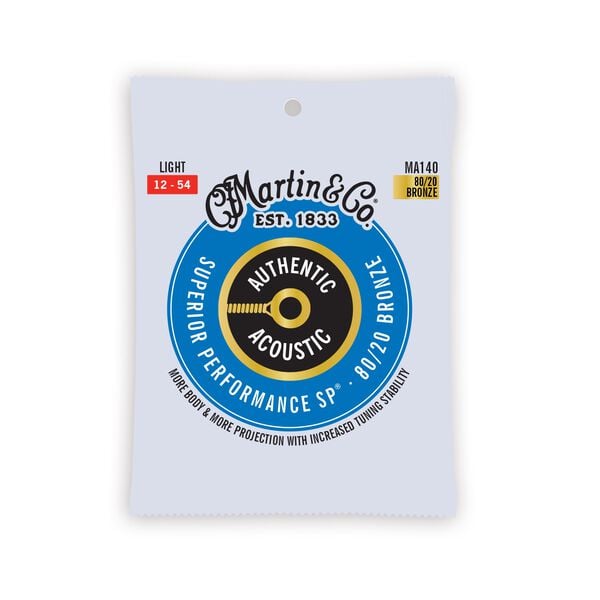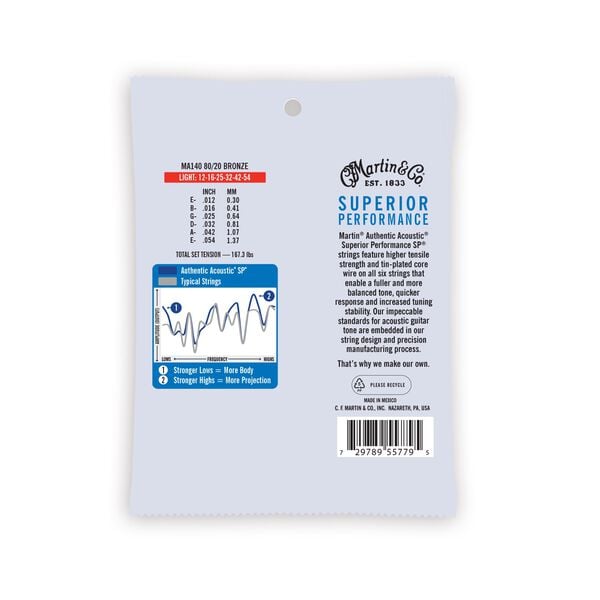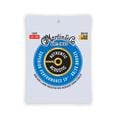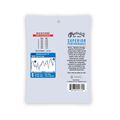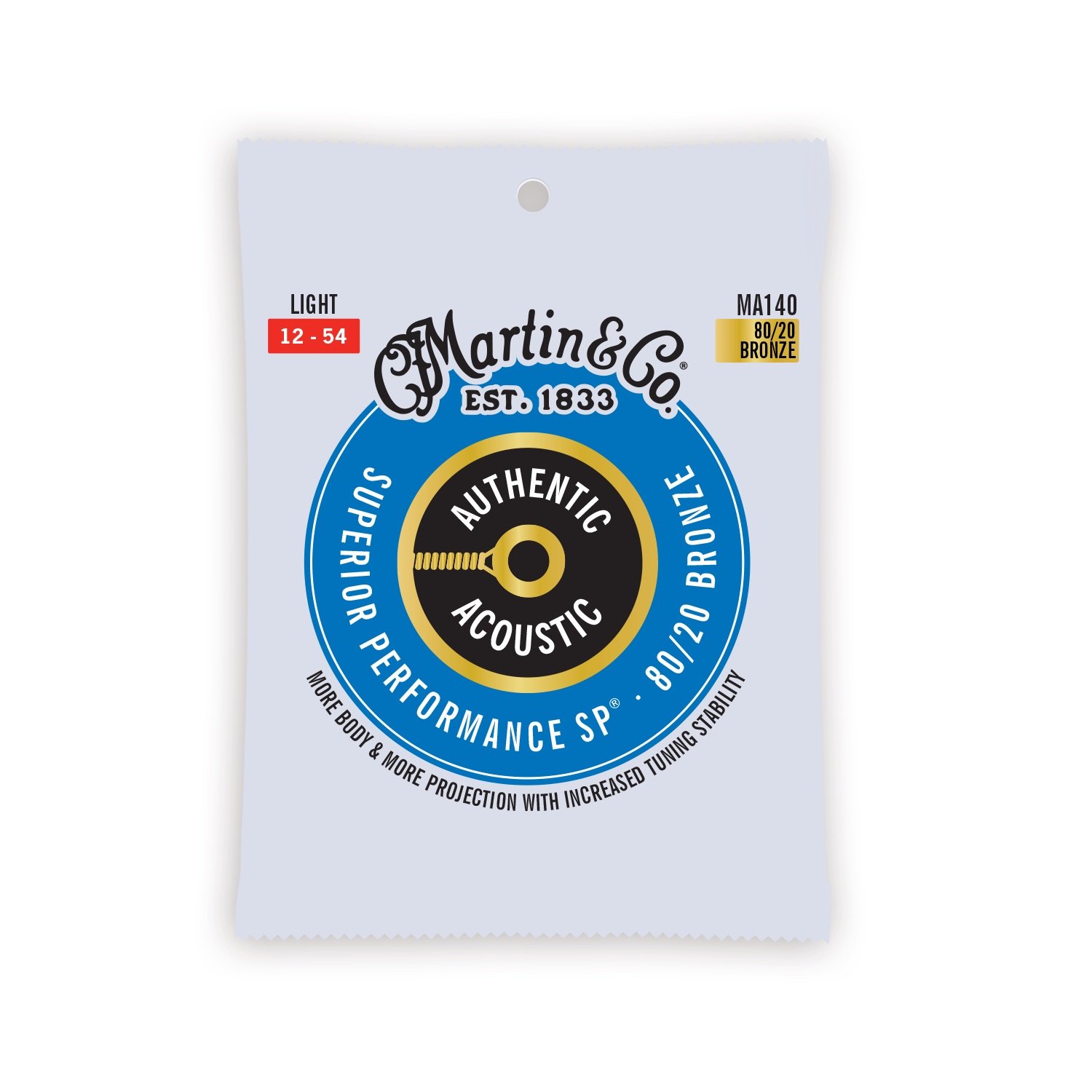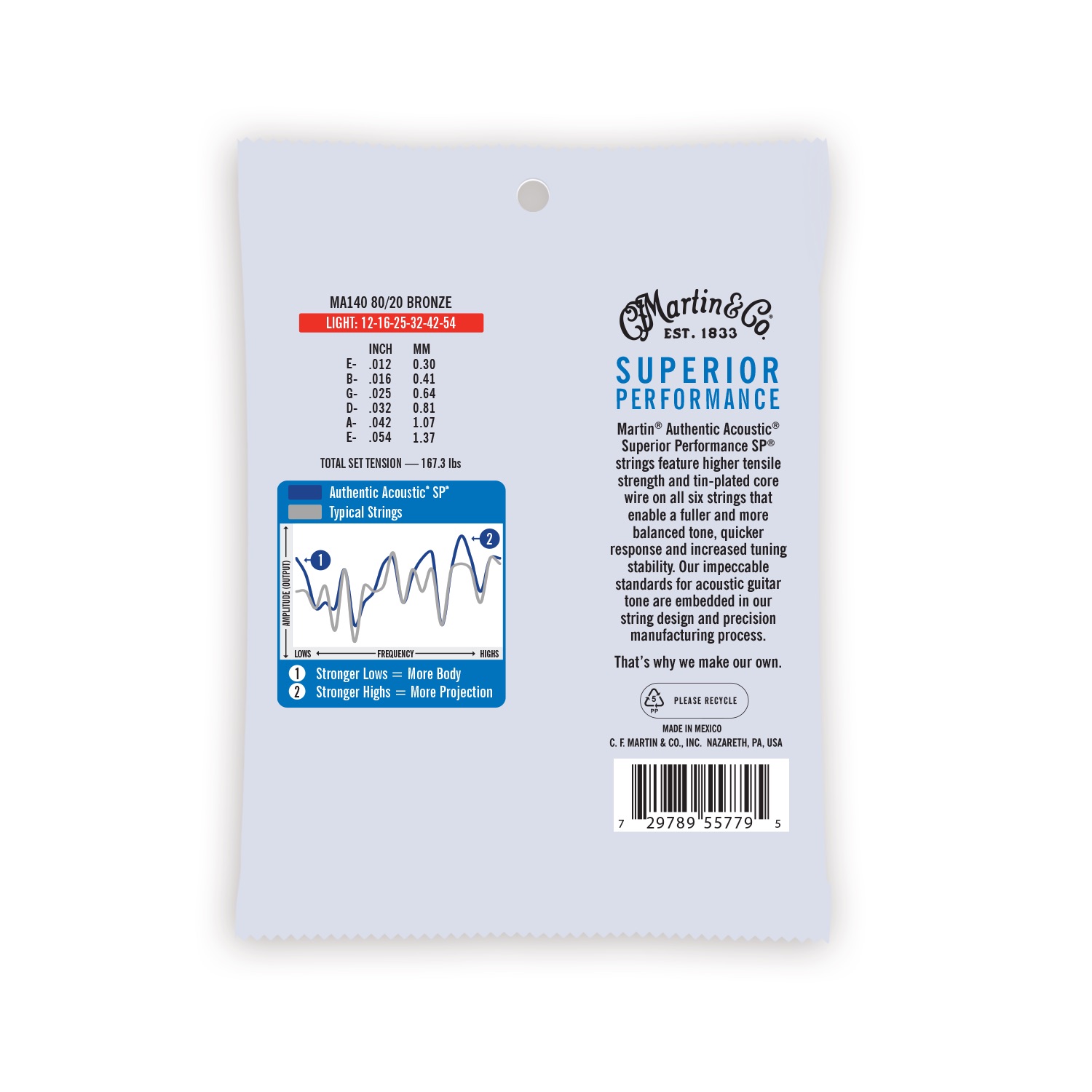Authentic Acoustic SP® Guitar Strings 80/20 Bronze
Authentic Acoustic SP® Guitar Strings 80/20 Bronze
Tin-Plated Core, Higher Tensile, Rigorous Performance
How to choose a string gauge for your acoustic guitar
String gauge is an important part of playing and getting the best possible sound out of your guitar.
Here’s everything you need to know about acoustic guitar string gauges to make an informed decision about what strings are best for you.
Gauge refers to the diameter of a string. Gauges are described in thousandths of an inch and can be found listed on the back of a string pack.
Overall, string gauges are classified as:
- Extra light
- Custom light
- Light
- Medium
- Heavy
For purposes of this tutorial we’ll refer to anything from extra light to light as “lighter,” and anything from medium to heavy as “heavier.” While we want this article to be a comprehensive overview of string gauges for acoustic guitars, it is important to note that Martin does not recommend heavy gauge strings for any Martin guitars. We recommend using only extra light through medium gauge strings on our guitars. Heavy strings can cause too much tension on the top which may cause irreversible damage.
If you’re just starting out, it’s not unusual that your fingers will have to toughen up a little. Lighter gauge strings will be more forgiving on your fingers as you’re learning, but as your dexterity and hand strength improve, you may find you prefer strings with different qualities.
Lighter
- Easier to fret (important for beginners) and to bend
- Better resonance under a lighter touch, common when first starting out
Heavier
- Bigger sound - provide more volume and resonance
- Better tuning stability - stays in tune longer
While string gauge is very much a matter of personal preference based on tone and feel, most manufacturers recommend string gauge based on body size. This is primarily due to the amount of tension exerted on the guitar top by the strings. In general, the larger the body, the more tension they can withstand.
Lighter
- Exert less tension and are typically recommended for smaller bodied guitars such as 0, 00, 000, and OM, plus all cutaway models
Heavier
- Exert more tension and are typically recommended for larger body sizes such as D, Jumbo, and Grand Jumbo
Certain techniques and styles of playing will demand different attributes from your strings and can impact which gauge you should choose.
Lighter
- Good choice for rock, folk, country, and blues style playing with a lighter attack (plucking)
- Allow for easier bending of notes
- May break more easily with more aggressive playing styles
Heavier
- Good choice for bluegrass and genres that require tuning down
- Good choice for rock, country, and blues style playing with a harder attack
Are you playing for yourself in your living room? Or do you need your sound to reach the back of an auditorium? You’ll want to be sure to choose the right string gauge that will help you and your guitar sound the best.
Lighter
- Offer appropriate volume and range for playing in an intimate setting
Heavier
- Produces more volume and sustain
- Great choice if you’re accompanied by other players
If you found yourself aligned with most of the qualities of “lighter” strings outlined here, choosing a string labeled “Light” is a good starting point. If you’re finding finger-fatigue is an issue, or you wish it was easier to bend notes, try extra light or custom light gauge strings.
If most of the qualities prescribed to heavier strings appealed to you, start with strings that are labeled “Medium.” While Martin does not recommend using heavy gauge strings on Martin guitars, we want to paint a complete picture of string gauge options. Some guitarists use heavy gauge strings for amplification, sustain, drop/down tuning, or tuning stability reasons.
One thing to keep in mind when trying out a new string gauge is to make sure your guitar is set up correctly for the gauge you're playing. Things like fret buzz can be a symptom of needing to visit a luthier to have your guitar adjusted.
